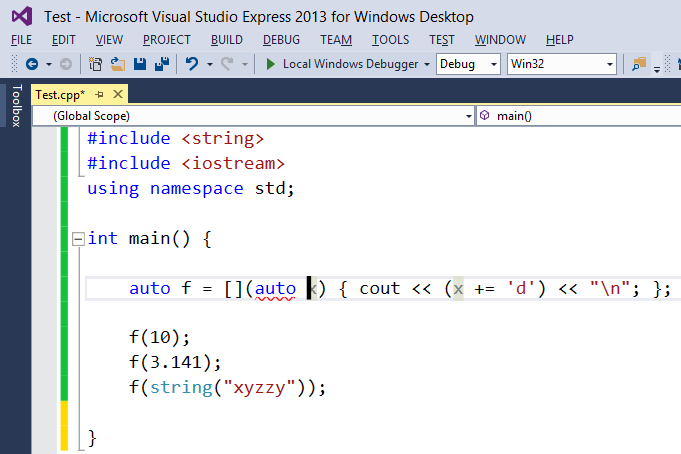LLVM 3.4 has been released with full C++1y support
 This morning, LLVM version 3.4 was released!
This morning, LLVM version 3.4 was released!
The latest version of the LLVM C++ compiler (Clang) and the standard library (libc++), fully implements the C++14 draft standard.
Release notes for clang are here:
and you can download the LLVM release here:


 Microsoft has announced a new Visual C++ Compiler CTP (Community Technology Preview):
Microsoft has announced a new Visual C++ Compiler CTP (Community Technology Preview): A new stable release of
A new stable release of  The STE||AR Group at Loisiana State University has released V0.9.7 of HPX -- A general purpose parallel C++ runtime system for applications of any scale.
The STE||AR Group at Loisiana State University has released V0.9.7 of HPX -- A general purpose parallel C++ runtime system for applications of any scale.
